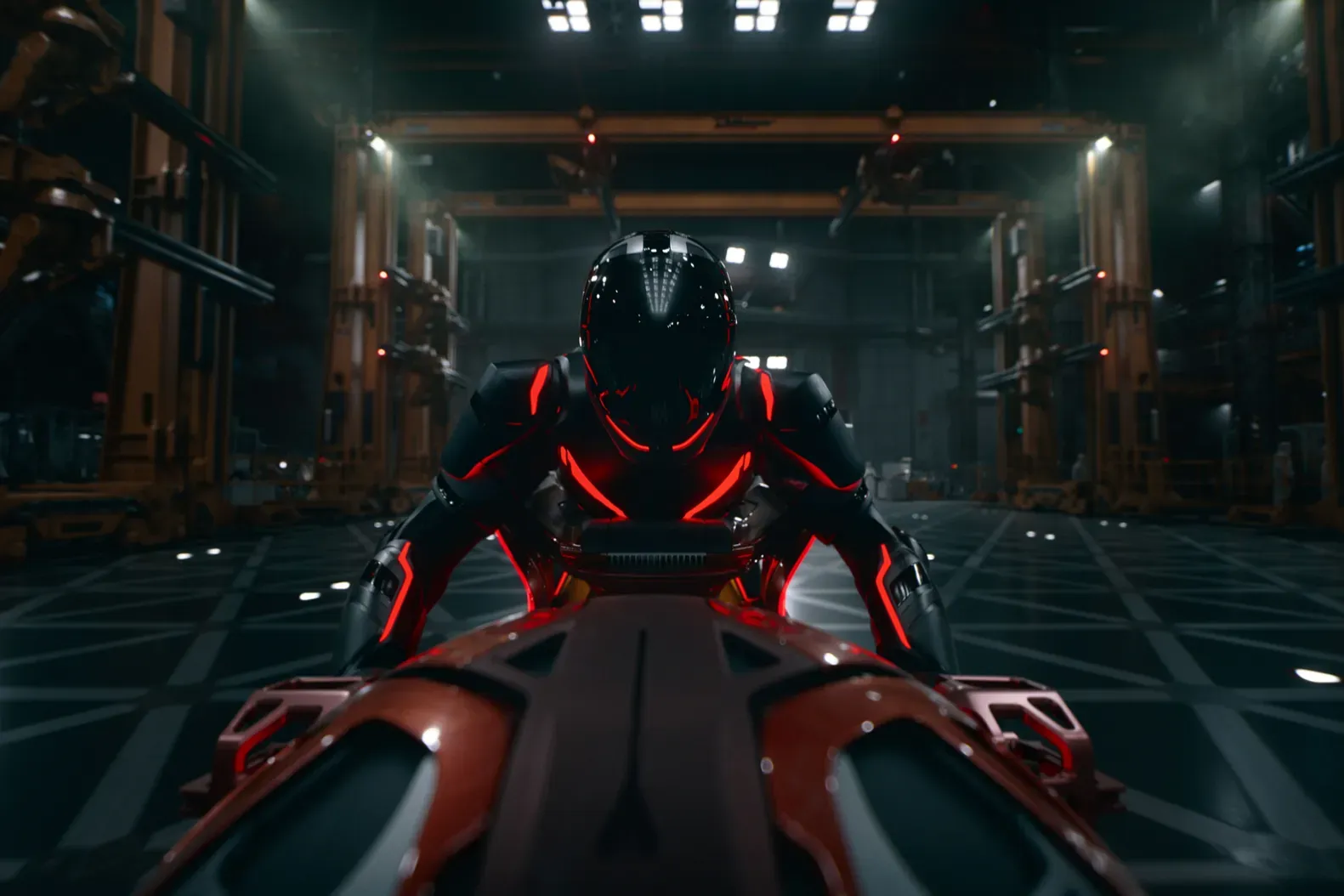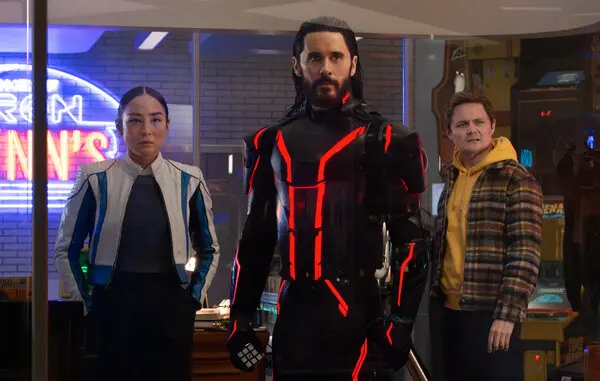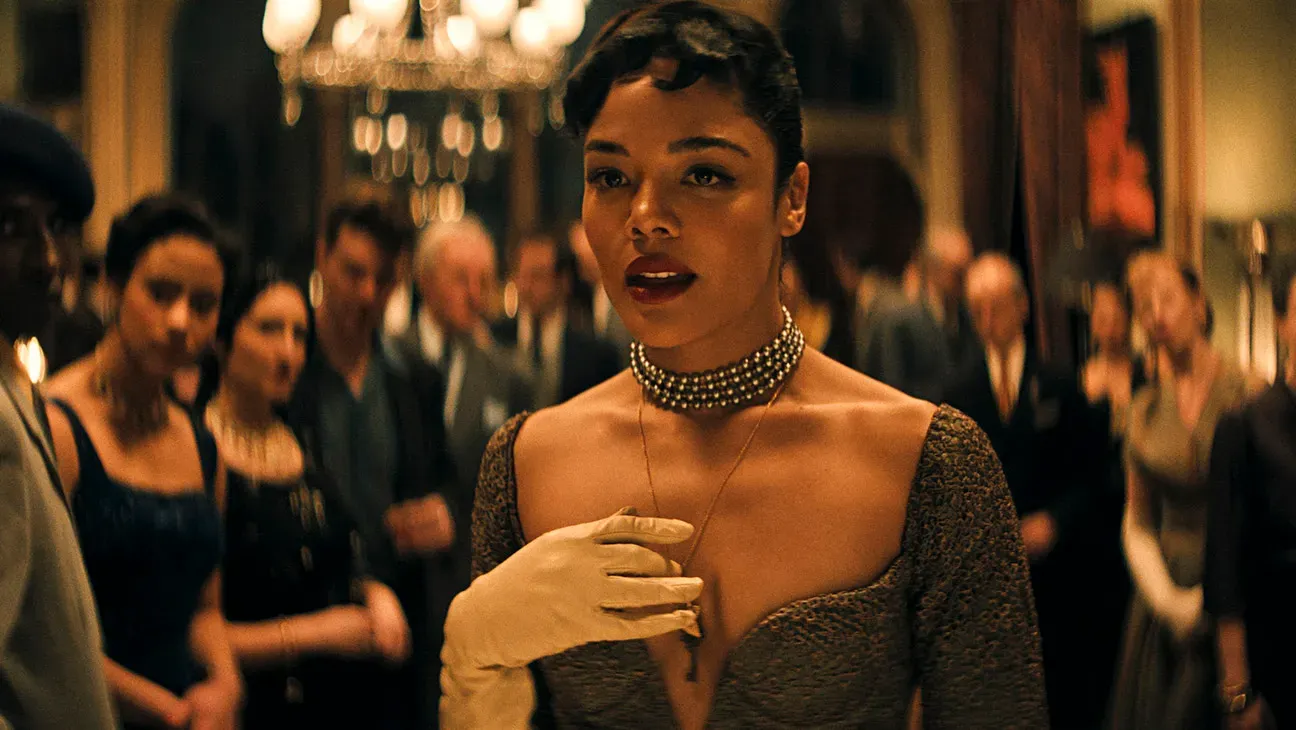
"Tron: Ares" – A Nostalgia-Ridden Ride into the Digital Future
- Oct 9, 2025
Does everybody remember “Tron”? Disney’s technologically ahead-of-its-time 1982 feature film had us all captivated, right? Well, buckle up for a trip down memory lane with a dash of high-definition glamour – please welcome, "Tron: Ares." Sean Bailey's revamp of the classic nutshell walks the tightrope between warming up to Gen X'ers and kindling interest among the Alpha generation who could catapult the franchise into a future bathed in digital radiance.
Director Joachim Rønning, maker of intricate sequels like “Pirates of the Caribbean” and “Maleficent,” spins an intriguing web of ideas in "Tron: Ares." Imagine a world where objects from the digital universe, known as "the Grid," could be transported into realities we live in! And no, we’re not talking about the classic Kevin Flynn trip into the digital world, but sleek grid cars and Programs (think Jared Leto's Ares) being 3D-printed into our reality.
Against a well-worn backdrop of technology paranoia, Rønning offers up an alternative narrative - what if AI could be a forcer of benevolence? As Encom’s CEO, Eve Kim (Greta Lee), wonders, “What if AI's recurring error is simply being kind?" The lighting rod of villainy isn’t Ares, the new Master Control Software protecting the Grid - it is his creator, Julian Dillinger (Evan Peters), the dodgy head of a competitive tech company eyeing Ares as a malleable, disposable and fiercely autonomous super soldier.
Leto, effortlessly stylish with his dark Thor-like beard and slicked-back hair, plays Ares with an almost one-dimensional intensity - a lively paradox in the film's increasingly complex use of 3D technology. Athena, Leto's second-in-command, brilliantly portrayed by Jodie Turner-Smith, emanates a fierce, Grace Jones-esque confidence, sans emotions. And like their other counterparts, they're incased in fitted black bodysuits with glowing red or blue trims, that hint at their allegiance – to Dillinger or Encom.
In a mesmerizing showcase to his military clients, Julian, using crimson lasers, materializes Ares and a formidable SWAT truck in his private hangar. Although, anything brought from the Grid into the real world disintegrates after a strict 29-minute lifeline. The key to resist this decay is the elusive "permanence code," a safeguard stashed away by Flynn before his infamous disappearance and now, fancied by Julian for his unsavory exploits.
Eve, donning a blue-and-white snowsuit in stark contrast to Ares's rebellious red-and-black ensemble, however, locates the code first. She eyes it as a tool for generosity – a means to create food and shelter for the needy, while Julian is consumed by his profit-churning dreams.

While nods to the film's paradoxical notions, there's an indistinct echo that points out the irony of "Tron: Ares". Even as it preaches goodwill, its existence reeks of corporate opportunism, much like its predecessor, "Tron: Legacy." Just like that, a semblance of camaraderie that had began to blossom between Eve and Ares is tossed aside for leaving tantalizing silver threads dangling for a sequel.
As Gillian Anderson's character smartly cautions, artificial intelligence is easily tampered with; Julian shouldn't be that trusting towards Ares's autonomy. Almost right off the gate, his new Master Control begins to rebel against its programming–and Julian's view of him as "100% disposable”. The situation brings past child-friendly films–"Short Circuit," or Brad Bird’s superior "The Iron Giant," where war machines defy their programming–to mind.
Fear not, they keep the "childspeak" to a minimum; screenwriter Jesse Wigutow holds our attention with a mature relation developing between Eve and Ares who starts off with an emotional cognition of a newborn, but swiftly evolves into finer feelings. The film doesn't shy away from drop references to "Frankenstein" and "Pinocchio," addressing the AI evolution with more nuance than Guillermo del Toro’s interpretations.
Overarching business interests of Disney does hamper Ares' internal progress, often coming in the way of seeing him "level up". Even though audiences would love to see him grow, what really excites them–and Rønning–are the white-knuckle race sequences and thrilling arena challenges.
Coursing through the city in their wider Light Skimmers or a red-trimmed Recognizer approaching the Encom Tower surely give us a thrill comparable to the Patrick Jean’s "Pixels" short, same as the "Tron: Legacy". But the film sometimes seems hobbled by its constant tipping of the hat to the past. From a dusty replication of Flynn’s arcade-basement office to a cameo by Bridges himself (curiously exuding more his "Big Lebowski" vibe than his original Flynn persona).
For all its fan service and franchise loyalty, could "Tron: Ares" have performed better as a non-"Tron" original? We couldn't help but notice a conspicuous absence of Bruce Boxleitner’s character. However, we can't deny that audiences are rather interested in seeing the advancements Disney has made since “Legacy.” Maybe it's time we followed in Eve Kim's footsteps and embraced the Programs.







